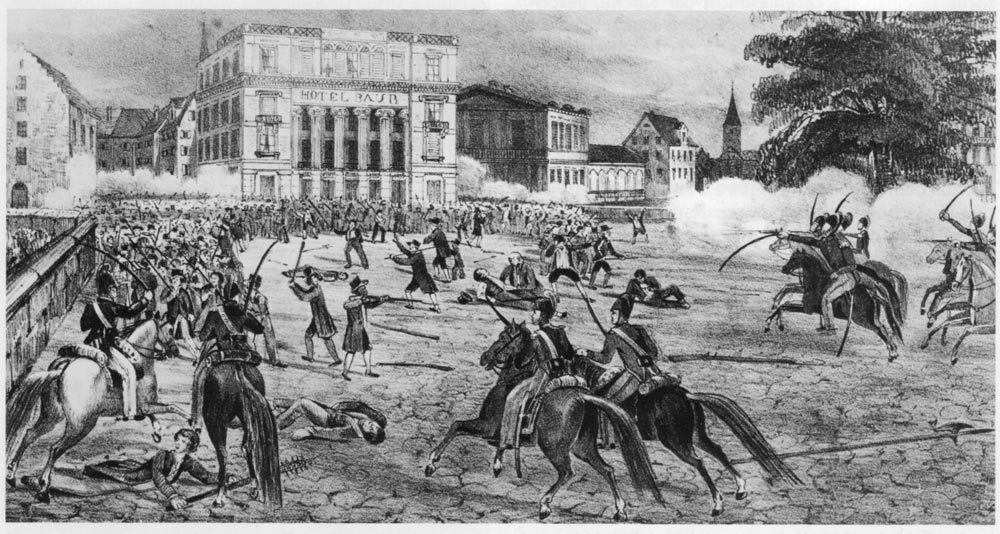Züriputsch on:
[Wikipedia]
[Google]
[Amazon]
 The Züriputsch of 6 September 1839 was a putsch of the rural conservative population against the liberal rule of the city of
The Züriputsch of 6 September 1839 was a putsch of the rural conservative population against the liberal rule of the city of
Etymology and definition of ''Putsch''
in German
 The Züriputsch of 6 September 1839 was a putsch of the rural conservative population against the liberal rule of the city of
The Züriputsch of 6 September 1839 was a putsch of the rural conservative population against the liberal rule of the city of Zurich
Zurich (; ) is the list of cities in Switzerland, largest city in Switzerland and the capital of the canton of Zurich. It is in north-central Switzerland, at the northwestern tip of Lake Zurich. , the municipality had 448,664 inhabitants. The ...
on the eve of the formation of the Swiss federal state. The reason for the putsch was the appointment of the controversial German theologian David Strauss
David Friedrich Strauss (; ; 27 January 1808 – 8 February 1874) was a German liberal Protestant theologian and writer, who influenced Christian Europe with his portrayal of the "historical Jesus", whose divine nature he explored via myth. St ...
to the theological faculty of the University of Zurich by the liberal government. The rural population saw the old religious order in danger.
Events
Led by Bernhard Hirzel, pastor of Pfäffikon, several thousand putschists stormed the city from the west, and fought the cantonal troops in the alleys between Paradeplatz andFraumünster
The Fraumünster (; lit. in ) is a church in Zürich which was built on the remains of a former abbey for aristocratic women which was founded in 853 by Louis the German for his daughter Hildegard. He endowed the Benedictine convent with the l ...
. Botanist and councillor Johannes Jacob Hegetschweiler was shot in the head as he was acting as a mediator between the city's council and the insurgents. He died three days later.
The Swiss German
Swiss German (Standard German: , ,Because of the many different dialects, and because there is no #Conventions, defined orthography for any of them, many different spellings can be found. and others; ) is any of the Alemannic German, Alemannic ...
term ''putsch'', originally referring to any sort of hit, stroke or collision, entered the German language as a political term, popularized by Gottfried Keller. The word gained further use during the First World War
World War I or the First World War (28 July 1914 – 11 November 1918), also known as the Great War, was a World war, global conflict between two coalitions: the Allies of World War I, Allies (or Entente) and the Central Powers. Fighting to ...
, as the equivalent of the English "push," to mean "going over the top" from a trench into no man's land. The derived verb ''aufputschen'' remains common in Standard German
Standard High German (SHG), less precisely Standard German or High German (, , or, in Switzerland, ), is the umbrella term for the standard language, standardized varieties of the German language, which are used in formal contexts and for commun ...
for "to incite", "to excite", in political or in doping contexts.in German
See also
* History of ZurichReferences
{{DEFAULTSORT:Zuriputsch Coups d'état and coup attempts in Switzerland 1830s coups d'état and coup attempts 1839 in Switzerland Conflicts in 1839 History of Christianity in Switzerland